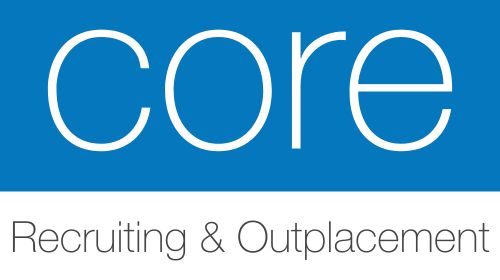
ed dysfunction drugs
FollowOverview
-
Founded Date August 21, 1915
-
Sectors Sales and Marketing
Company Description
A Complete Research on the Influence of Distant Work on Employee Productiveness And Properly-being
The COVID-19 pandemic has dramatically reworked the panorama of work, forcing many organizations to adopt distant work as a major mode of operation. This shift has prompted a myriad of research examining the implications of distant work on worker productivity and nicely-being. This report synthesizes current analysis findings, highlights key trends, and discusses the lengthy-time period effects of remote work on each employees and organizations.
Introduction
Distant work, sometimes called telecommuting or working from dwelling, has gained significant traction lately. When you loved this article and you want to receive much more information regarding ed dysfunction medications kindly visit our own web-page. Even earlier than the pandemic, many corporations had begun to discover versatile working arrangements. Nevertheless, the necessity of remote work in the course of the pandemic has accelerated its adoption, resulting in a reevaluation of conventional work constructions. This report goals to discover how remote work affects worker productiveness and well-being, drawing on recent studies and surveys.
The Shift to Distant Work
The transition to remote work was swift and unprecedented. In line with a survey by Gartner, 88% of organizations encouraged or required workers to work from home in the course of the pandemic. This speedy shift raised questions concerning the effectiveness of distant work and its affect on employee efficiency and mental health.
Employee Productivity
Optimistic Impacts
A number of studies point out that remote work can improve employee productiveness. A report from Stanford University found that distant employees have been 13% more productive than their in-office counterparts. The rise in productiveness is attributed to several components:
- Decreased Commute Time: Employees save time and power by eliminating every day commutes, allowing them to start work earlier or allocate time to personal activities.
- Flexible Schedules: Remote work often permits for more versatile hours, enabling workers to work throughout their peak productivity occasions.
- Fewer Distractions: Many staff report fewer interruptions at house in comparison with a conventional workplace atmosphere, resulting in improved focus and effectivity.
Challenges to Productivity
Despite these benefits, remote work also presents challenges that can hinder productivity:
- Isolation: The lack of social interplay can lead to feelings of loneliness and disconnection, negatively impacting motivation and engagement.
- Work-Life Balance: The blurring of boundaries between work and personal life can result in overwork and burnout, as staff might find it troublesome to “swap off.”
- Expertise Dependence: Remote work relies heavily on expertise, and issues akin to connectivity issues or inadequate tools can disrupt workflow.
Employee Properly-being
Psychological Well being Considerations
The influence of distant work on employee mental well being is a double-edged sword. On one hand, remote work can scale back stress associated with commuting and office politics. Then again, it could result in emotions of isolation and anxiety. Based on a survey carried out by the American Psychological Association, 61% of remote workers reported feeling extra isolated since the start of the pandemic.
- Positive Features: Many workers admire the flexibleness and autonomy that remote work supplies, which might enhance job satisfaction and general well-being.
- Damaging Points: The lack of face-to-face interaction can result in increased emotions of loneliness and depression. Furthermore, the lack to disconnect from work can exacerbate stress ranges.
Work-Life Integration
Remote work has prompted a shift from work-life stability to work-life integration. Staff are increasingly blending their professional and private lives, which may have both optimistic and adverse outcomes. Whereas some individuals thrive on this integrated surroundings, others wrestle to take care of boundaries, resulting in increased stress and burnout.
Lengthy-time period Implications for Organizations
As organizations consider the long run of labor, a number of trends are rising regarding distant work’s long-time period implications:
- Hybrid Work Fashions: Many corporations are adopting hybrid work models that combine remote and in-office work. This approach goals to balance the advantages of remote work with the advantages of in-particular person collaboration.
- Funding in Expertise: Organizations are investing in know-how and instruments that facilitate remote collaboration and communication, ensuring that staff remain connected and engaged.
- Focus on Employee Properly-being: Corporations are more and more prioritizing worker effectively-being, offering resources resembling psychological well being support, flexible schedules, and wellness packages to address the challenges of remote work.
Conclusion
The shift to distant work has profoundly impacted worker productiveness and effectively-being. Whereas many employees report increased productiveness and job satisfaction, challenges reminiscent of isolation and burnout remain prevalent. As organizations navigate this new panorama, it’s crucial to undertake methods that promote a healthy work atmosphere, foster collaboration, and support worker mental health. The long run of work will likely involve a mix of distant and in-workplace preparations, emphasizing the significance of flexibility and properly-being in the office. Continued analysis and adaptation shall be essential as each employees and organizations seek to thrive on this evolving work environment.
Suggestions
- Encourage Common Examine-ins: Managers ought to establish common verify-ins with distant staff to foster connection and address any issues.
- Promote Work-Life Stability: Organizations should implement policies that encourage workers to set boundaries and take breaks to forestall burnout.
- Put money into Expertise: Corporations should make sure that employees have entry to the mandatory instruments and resources to work effectively from residence.
- Provide Psychological Health Resources: Organizations should provide mental well being help and assets to help staff cope with the challenges of distant work.
By understanding and addressing the complexities of remote work, organizations can create a more productive and supportive environment for their staff, finally resulting in higher success in the long term.
